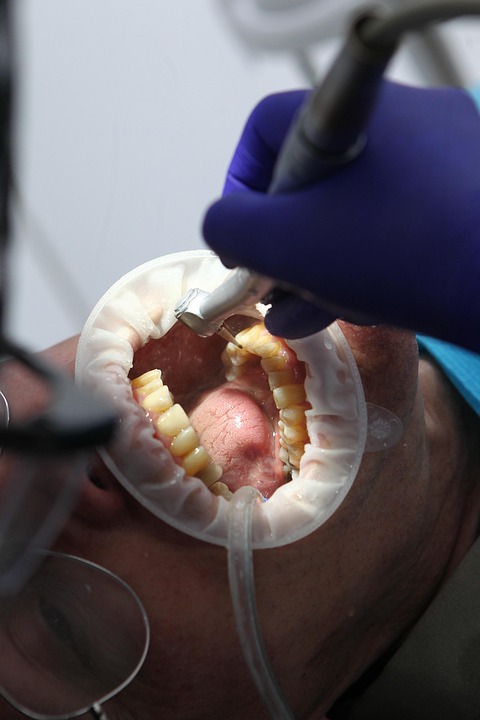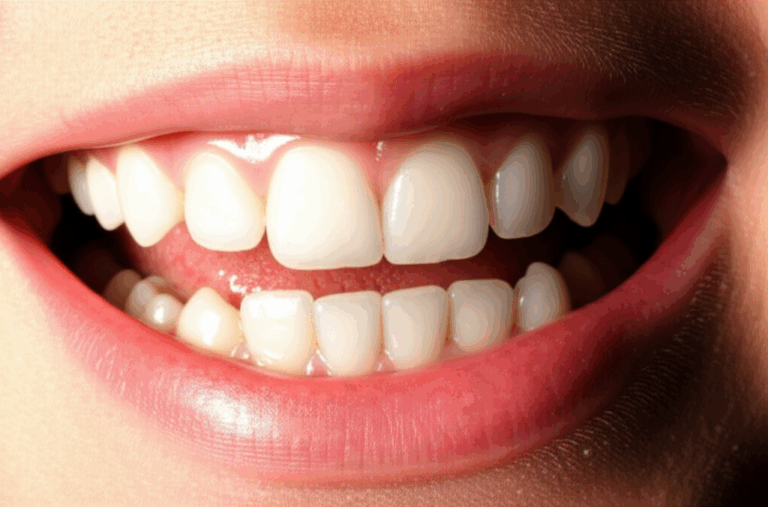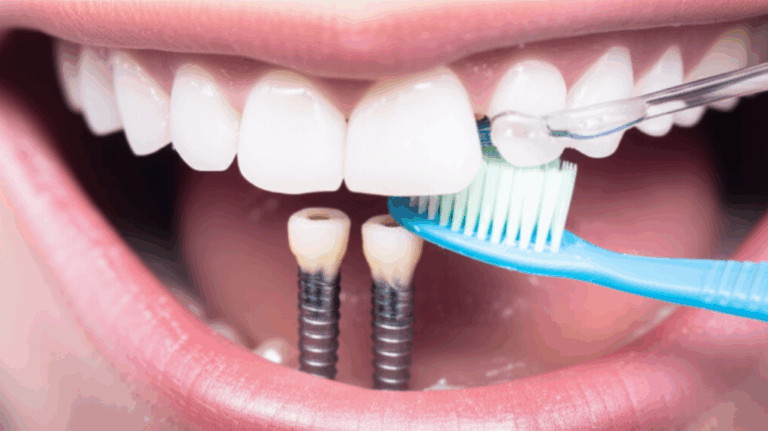
Is TMJ a Dental or Medical Problem? Understanding Jaw Pain and Finding the Right Care
Have you ever felt a sharp click in your jaw, a deep ache that spreads to your ear, or even a strong headache you can’t really figure out? Maybe your jaw feels stiff when you chew or yawn. If these problems sound like yours, you’re not the only one. Lots of people deal with jaw pain each year, and aren’t sure who to see for help. You might wonder: Is TMJ a dental or medical problem? Should you visit your dentist or your doctor? Is the issue with your teeth, your joint, your muscles, or maybe all of them? Good news—you’re in the right spot to get some answers.
Before we dive in, here’s something important: TMJ problems often tie into both medical and dental issues. But don’t worry. Once you know what’s happening with this little joint, you can figure out how to take care of it.
Table of Contents
- What is the TMJ (Temporomandibular Joint) Anyway?
- Decoding TMJ Disorders: Signs, Symptoms, and Everyday Triggers
- When is TMJ a Dental Problem?
- When is TMJ a Medical Problem?
- Understanding the Dental-Medical Overlap
- Who Should You See for TMJ Symptoms?
- How TMJ Disorders Are Diagnosed
- Treatment Options: From Mouthguards to Medication (and More)
- Living Better with TMJ: Prevention and Self-Care Tips
- Key Takeaways: Your Action Plan for Jaw Pain
What is the TMJ (Temporomandibular Joint) Anyway?
Let’s start with the basics. The TMJ—short for temporomandibular joint—is like a hinge that connects your jawbone (mandible) to your skull (temple bone), right in front of your ear. Think of it as a tiny, smart hinge wrapped in muscle, cartilage, and a little disc that acts like a cushion. Thanks to this joint, you can talk, chew, yawn, and laugh.
Main parts of the TMJ are:
- Mandible: Your lower jawbone
- Maxilla: Your upper jaw
- Articular Disc: Like a small pillow that protects your bones as your jaw moves
- Muscles and Ligaments: Muscles like masseter, temporalis, and pterygoids help you open and close your mouth
- Nerves: The trigeminal nerve lets you feel things in your face and jaw
Every time you eat or sing along in the car, you use your TMJ a lot—hundreds of times every day.
Decoding TMJ Disorders: Signs, Symptoms, and Everyday Triggers
Now you know where your TMJ is, but what if something goes wrong? Dentists and doctors call problems here Temporomandibular Disorders (TMD). That’s just a long name for pain or trouble around your jaw joint.
Common symptoms:
- Jaw pain or soreness: Sometimes it aches, sometimes it’s sharp
- Face pain: In your cheeks, temples, or around your ears
- Headaches: Pressure around your temples or behind your eyes
- Ear pain, ringing (tinnitus), or feeling full in your ear
- Jaw clicking, popping, or grinding sounds: Sometimes noisy, sometimes hurt
- Hard or painful chewing or opening/closing your mouth: Your jaw might get “stuck” open or closed
- Neck pain or stiffness
- Teeth pain or sensitivity: Even when your teeth seem fine
What causes TMJ problems?
TMDs can be hard to figure out. They don’t come from just one thing. Here are some of the main causes:
- Grinding or clenching teeth (bruxism): Often happens while you sleep or when you’re stressed
- Bad bite: When your teeth don’t line up right
- Arthritis: Your TMJ can get arthritis just like your knees
- Injury or trauma: Like a fall or getting hit in the face
- Stress: Tension builds up in your jaw muscles and makes pain worse
- Dental work: Things like crowns, fillings, or missing teeth can change your bite
- Other illnesses: Problems like fibromyalgia or other body illnesses can play a part
Think of your jaw joint like cabinet doors. If the hinge is off—or if someone slams the door—it doesn’t open or close right. Sometimes there’s more than one thing causing trouble.
When is TMJ a Dental Problem?
Wondering if you should call your dentist first when your jaw hurts? Often, yes!
Why? Dentists look for TMJ problems often because they can have dental causes:
- Bite Problems: If your teeth don’t meet well, chewing puts uneven stress on your jaw.
- Grinding and Clenching: Grinding wears down your teeth and your TMJ.
- Missing or Damaged Teeth: Lost teeth or dental fixes that change your bite can shift your jaw.
What dentists can do:
- Mouthguards/night guards: These are made by a night guard dental lab and protect your teeth at night.
- Bite adjustments: Small changes to your fillings or crowns to help your teeth match up.
- Braces or aligners: These can straighten teeth so your top and bottom teeth fit together better.
- Fixing teeth: Crowns, bridges, or implants from a crown and bridge lab replace lost teeth.
- Splint therapy: Similar to a mouthguard, helps rest the jaw joint.
- Advice: Tips about habits that make things worse (chewing gum, biting nails).
Tip: Not all jaw clicks mean you need treatment. Your dentist will decide what’s needed based on your own situation.
When is TMJ a Medical Problem?
Sometimes, TMJ pain isn’t just about teeth. The joint is like other joints in your body. TMJ problems can come from problems with joints, muscles, nerves, or your whole health.
Main medical causes:
- Arthritis: Wear-and-tear or immune system problems can hurt the TMJ.
- Injury: Any blow or accident in your mouth or face.
- Muscle or nerve problems: Headaches, nerve pain, or things like fibromyalgia.
- Other illnesses: Autoimmune disease, infections, or other body problems.
- Stress and mental health: Worry, sadness, or stress can make your jaw muscles clamp tight.
Who can help with medical TMJ?
All kinds of doctors, depending on what’s going on:
- Family doctor: For checking you first or giving referrals.
- Nerve doctor (Neurologist): For headaches or nerve pain.
- Ear, Nose, Throat doctor (ENT): If you have a lot of ear trouble.
- Joint doctor (Rheumatologist): If you have arthritis in other places.
- Pain doctor: For long-lasting, tough-to-treat pain.
- Physical Therapist: For jaw exercises and muscle help.
- Talk therapist: If stress or worry makes things worse.
Medical treatments might be:
- Medicines: Pain killers (NSAIDs), muscle relaxers, drugs for mood or anxiety
- Shots: Steroids or Botox to calm down muscles or swelling
- Physical Therapy: Jaw exercises, heat/cold therapy
- Stress help: Mindfulness, counseling, feedback to help relax
- Surgery (rare): Flushing the joint, using tiny tools to look/fix, or even joint surgery in tough cases
Understanding the Dental-Medical Overlap
Here’s the truth: TMJ problems don’t fit in just one box. Just like asking which came first—the chicken or the egg—dental and medical causes often mix together.
Dental problems (like a bad bite) can lead to:
- Jaw pain
- Muscle tension
- Headaches or ear problems
Medical problems (like arthritis or stress) can lead to:
- Grinding or clenching teeth
- Jaw joint swelling
- Muscle changes
Example:
Someone has daily headaches and earaches. At first, they get treated for migraine and sinus trouble (medical). Then, they get dental work (a root canal) because their teeth hurt. In the end, after looking at the TMJ, it turns out they grind their teeth and the jaw disc moved out of place. Real help comes from a team: a dental mouthguard, jaw exercises, and stress therapy. Suddenly, both dental and medical problems start to get better.
Big idea:
TMDs usually need a team effort, with both dental and medical help to feel better.
Who Should You See for TMJ Symptoms?
The short answer: Start with your dentist OR your family doctor, especially if you’re not sure why you hurt.
See your dentist first if:
- Your jaw pain started after dental work
- You grind your teeth or your bite is off
- Your teeth are worn, cracked, or sore
- Your jaw hurts most in the morning
See your doctor or specialist if:
- You have swelling, fever, or redness by your jaw
- You have arthritis in other parts of your body
- You’ve had an injury to your head, jaw, or neck
- Your jaw locks open or closed often
- You feel tingling or numbness in your face
Who else might help?
Depending on your first checkup, you could see:
- Oral Surgeon: For bigger jaw problems or if surgery might help
- Jaw Pain Expert (Orofacial Pain Doctor): For tricky, long-lasting face pain
- Physical Therapist: For muscle/jaw movement
- Braces/teeth replacement expert: If tooth position or missing teeth are a thing
- Neurologist, ENT, Joint doctor: If pain doesn’t get better—or if there are other red flags
Remember: You deserve answers. Your pain is real and treatable.
How TMJ Disorders Are Diagnosed
A good checkup is the first step to feeling better. Here’s how it goes:
At your visit
- Hands-on check: They touch and feel your jaw, look for swelling, and ask you to open and close your mouth.
- Listening: They check for sounds like pops, clicks, or grinding
- Range of Motion: How far you can open your mouth, and does it hurt?
- Bite check: Looking at your teeth and how they line up/wear
Pictures (when needed)
- X-rays: To look at bone, arthritis, or joint problems
- MRI: The best way to see discs and soft tissue in your TMJ
- CT scans: For close-up bone views, if surgery is considered
Talking about your symptoms
- When did it start?
- Does it come and go, or is it always there?
- Is it worse in the morning or after chewing?
- Any injury, dental work, or stress lately?
Tip: Bring a list of your symptoms, medicines, and medical history to your visit.
Treatment Options: From Mouthguards to Medication (and More)
Good news: Most people with TMJ issues get better with simple, non-surgery treatments. Surgery is almost never needed.
Home Care and Life Changes
- Softer foods: No hard, crunchy, or chewy foods; eat things like yogurt, soup, eggs
- Give your jaw a break: No gum, ice, or big yawns
- Heat/Ice pads: Warm packs help relax, Ice helps bring down swelling
- Jaw exercises: Moves from your physical therapist can help your jaw feel better
- Stress control: Mindfulness, deep breathing, or fun hobbies help relax tight muscles
Dental Help
- Mouthguards/Night Guards: Protect teeth and relax your jaw at night. They’re often made at a china dental lab or digital dental lab.
- Splints: Like mouthguards, sometimes made to change your bite
- Braces: To fix tooth problems
- Fixing/Replacing Teeth: Filling in gaps or fixing broken teeth
Medical Help
- Medicines: Pain relievers, muscle relaxers, mood medicines
- Botox shots: Relax tight jaw muscles for a short while
- Steroid shots: Calm down a swollen joint
- Physical Therapy: Jaw exercises, maybe laser or ultrasound
- Support for your mood: Especially if anxiety, worry, or sleep trouble is part of the problem
Simple Medical Procedures (Rarely Needed)
- Joint flushing (Arthrocentesis): Rinse the joint to help pain/stiffness
- Small surgery (Arthroscopy): Tiny tools fix or check the joint
- Open surgery: Only for very serious, tough cases
How long does it take to get better?
Many people feel better in weeks with steady, gentle care. Tougher cases might take longer and need a mix of treatments.
Living Better with TMJ: Prevention and Self-Care Tips
You can’t stop every cause of TMJ problems, but taking care of your jaw really helps.
Tips for a happier jaw:
- Eat soft foods when your jaw hurts
- Don’t force wide yawning or big mouth opening
- Sit up straight—it helps your jaw and neck
- Find ways to handle stress—exercise, music, hobbies
- Wear your mouthguard if your dentist gave you one
- Don’t chew on pens, nails, or ice
And keep up with regular teeth checkups. Seeing your dentist often can catch problems before they get big.
Key Takeaways: Your Action Plan for Jaw Pain
In simple words:
- TMJ problems usually mix dental and medical causes—not just one or the other.
- See your dentist or doctor first—they’ll guide you on what to do next.
- Most TMJ issues get better with easy, non-surgery treatments and small life changes.
- Don’t ignore jaw pain—getting help early stops problems from getting bigger.
- Ask for specialists (like a jaw surgeon or pain doc) if things stay bad—tough cases often need a team.
If you just realized your headaches, ear pain, or jaw clicks might fit TMJ, it’s worth talking about with your health care team. Bring it up! You aren’t alone—and you don’t have to “just deal with it.”
And don’t forget: having a jaw that doesn’t hurt, and that moves easily, makes daily life so much better. You deserve that.
For more on teeth care and mouth health, check out:
- teeth information for basics
- dental diseases to learn about other problems
- dental care for taking care of your smile.
Medically reviewed by Dr. Jane Doe, DMD, 2024
Sources: American Dental Association (ADA), Mayo Clinic, National Institutes of Health (NIH), and others.
This article is for general info. Please see your dentist or doctor for advice that fits you and your symptoms.








